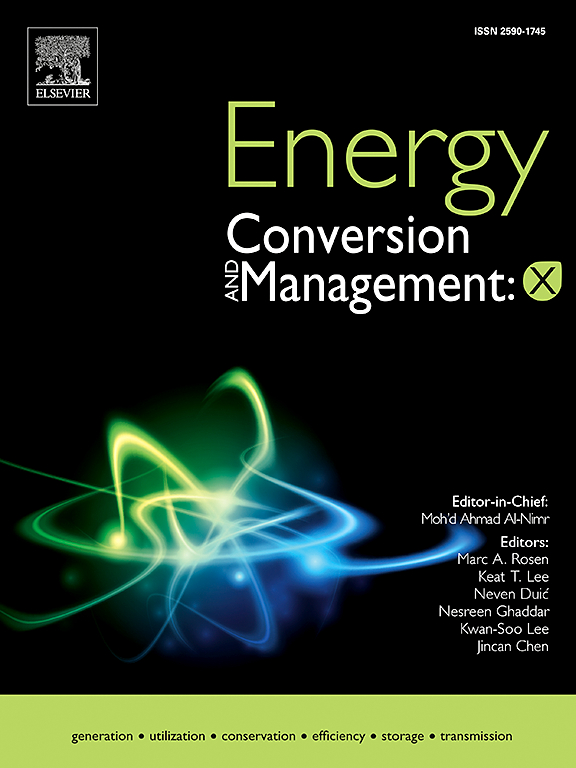Analysis of a combined cycle utilizing parabolic trough collector integrated organic Rankine cycle and single-stage evaporation
IF 7.1
Q1 ENERGY & FUELS
引用次数: 0
Abstract
Considering the harmful environmental effects of greenhouse gases, including global warming, many researchers are looking to use cleaner energy. In the meantime, renewable energies, including solar energy, have received much attention due to their availability and sustainability. There are different processes for desalination including multi effect desalination (MED), reverse Osmosis (RO), multi stage flash (MSF), etc. The proposed innovative system in this research is based on parabolic trough collector (PTC), which makes the system efficient and renewable. In this system, PTC have the task of collecting sunlight and transferring it to the organic Rankine cycle (ORC). The turbine is responsible for generating electricity in the ORC in this system. Also, the residual heat is transferred to the single stage evaporation unit (SSE). This unit produces hot water and fresh water. Also, the remaining heat is used by another heat exchanger to produce hydrogen. The integration of this system with renewable energy as a research gap was investigated in this research. The proposed system is simulated in Aspen HYSYS software. Finally, the amount of production equivalent to 32.2 kg/s, 0.55944 kg/s, 4156 kW and 10 kg/s was calculated for hot water, hydrogen, electricity and fresh water respectively.
求助全文
约1分钟内获得全文
求助全文
来源期刊

Energy Conversion and Management-X
Multiple-
CiteScore
8.80
自引率
3.20%
发文量
180
审稿时长
58 days
期刊介绍:
Energy Conversion and Management: X is the open access extension of the reputable journal Energy Conversion and Management, serving as a platform for interdisciplinary research on a wide array of critical energy subjects. The journal is dedicated to publishing original contributions and in-depth technical review articles that present groundbreaking research on topics spanning energy generation, utilization, conversion, storage, transmission, conservation, management, and sustainability.
The scope of Energy Conversion and Management: X encompasses various forms of energy, including mechanical, thermal, nuclear, chemical, electromagnetic, magnetic, and electric energy. It addresses all known energy resources, highlighting both conventional sources like fossil fuels and nuclear power, as well as renewable resources such as solar, biomass, hydro, wind, geothermal, and ocean energy.
 求助内容:
求助内容: 应助结果提醒方式:
应助结果提醒方式:


